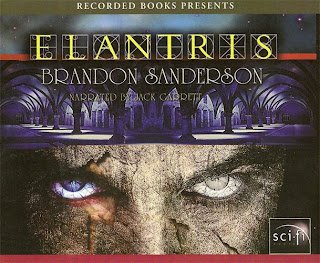If popularity is a good measure of a book's siginificance--and according to Edgar Allen Poe it is--I won't make a lot of people happy by saying I was not impressed by this book. In fact, I felt like a kid in a high-chair watching the literary spoon of wisdom
airplaning towards my mouth-- unavoidable and guided by the hand of Paulo
Coelho. I don't generally have anything against didactic literature; I thoroughly enjoy C.S. Lewis' more didactic narratives, such as "The
Pilgrim's Regress" or "The Great Divorce." Yet in this book, I felt like the
didacticism had dropped a level or two in both complexity and defensibility.
My first issue with
Coelho's drops of wisdom may be my own fault. Perhaps since I had never read any other book by this author, I had a difficult time seeing him as figure from whom I wanted to drink up treasures

of wisdom. Yet I think this issue has its root in my second issue: that
Coelho presents his wisdom as a mystical appeal to emotion, apparently without feeling a need to present it with a defence or rationalized argument. Again, this may reveal more about my personal preferences for didactic literature, but as I read this book, I quickly tired of shallow narrative relying on repeated phrases and situations to convey wisdom.
I won't try to present C.S. Lewis as a master of didactic narratives, but one prominent aspect of Lewis' narratives that sets him above
Coelho--in my mind at least--is that Lewis often presents didactic allegories as apologies of his point of view (to clarify, I'm using the word apology in the sense of a rational defense). "The Pilgrim's Regress," for example (written as a parody of "The
Pilgrim's Progress"), follows a similar storyline and protagonist goal as "The Alchemist," but the reader does not need to rely on the authority of Lewis as a teacher of wisdom, as I feel the reader must do--to an extent--in "The Alchemist." Rather, Lewis is careful to lay out arguments for each way of life, and subsequently, the reason why the pilgrim continues to search. The reason to continue is never simply the result of an omen or the advice of a sage.
Perhaps, when it comes down to it, I'm skeptical of an "inspirational" novel that fails to explain or qualify as it inspires. It may be too easy to take the extreme or
incautious view of the search for your Personal Legend from this book.
My wife mentioned that this story reminds her of the happy, optimistic version of "Candide" (which ironically is also called "Optimism"), and I agree. This comparison raises a question of why such similar and still completely opposite stories have been so popular at different times? Where this book praises the search for the Personal Legend and the rewards of seeking more in life, Candide almost mocks the idea of the Personal Legend. What is it about human nature that we are still reading "Candide" after 250 years, even while a book like "The Alchemist" also gains wide popularity?
Genre: Inspirational
 He writes people who live ordinary lives that somehow become extraordinary and profound as we reflect on them. I found this novel to be comparable to Angle of Repose in a lot of ways. It focuses on a small family being swept around the American west by the changing fortunes and endeavors of the husband--though admittedly, the husbands are very different in the two books. The focus of the novel seemed different to me, however, and Angle of Repose seems like an evolution from The Big Rock Candy Mountain. This novel focuses on the marriage of Bo and Elsa Mason, but more than that it focuses on parenthood, as the perspectives shift to the children as they grow and understand their parents. In Angle of Repose, Stegner focused more on the marriage in the story, but he also went to another level of depth, writing the story from the perspective of the modern historian, Lyman Ward, whose wife had left him. In that book, Stegner added an extra level of depth that didn't exist in its predecessor. Lyman Ward gives us a catalyst of application and relatability as we see the lives of his grandparents through his eyes.
He writes people who live ordinary lives that somehow become extraordinary and profound as we reflect on them. I found this novel to be comparable to Angle of Repose in a lot of ways. It focuses on a small family being swept around the American west by the changing fortunes and endeavors of the husband--though admittedly, the husbands are very different in the two books. The focus of the novel seemed different to me, however, and Angle of Repose seems like an evolution from The Big Rock Candy Mountain. This novel focuses on the marriage of Bo and Elsa Mason, but more than that it focuses on parenthood, as the perspectives shift to the children as they grow and understand their parents. In Angle of Repose, Stegner focused more on the marriage in the story, but he also went to another level of depth, writing the story from the perspective of the modern historian, Lyman Ward, whose wife had left him. In that book, Stegner added an extra level of depth that didn't exist in its predecessor. Lyman Ward gives us a catalyst of application and relatability as we see the lives of his grandparents through his eyes.







